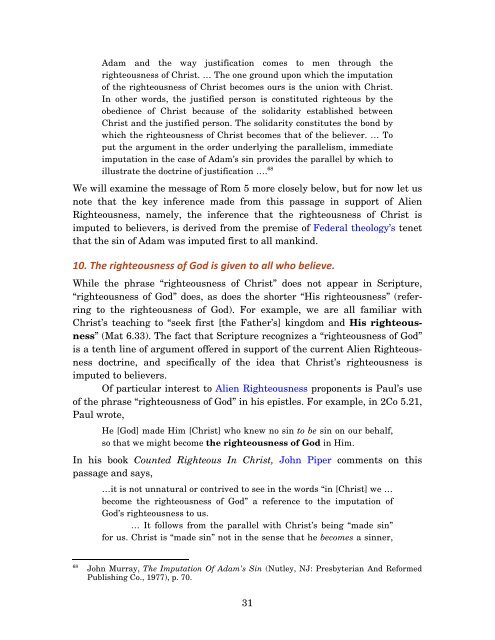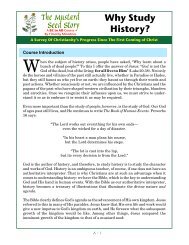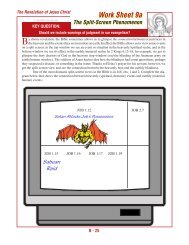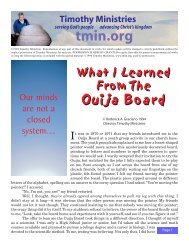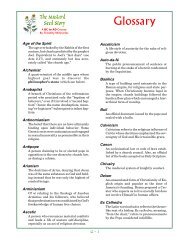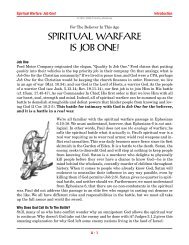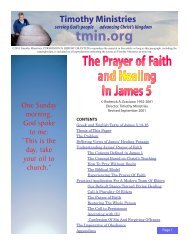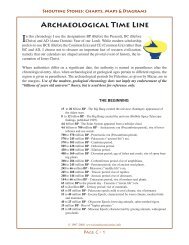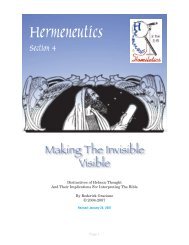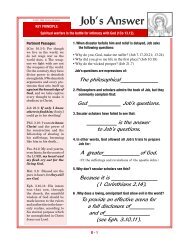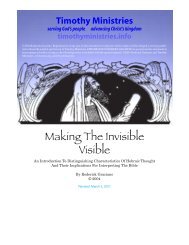Alien Righteousness? - Timothy Ministries
Alien Righteousness? - Timothy Ministries
Alien Righteousness? - Timothy Ministries
Create successful ePaper yourself
Turn your PDF publications into a flip-book with our unique Google optimized e-Paper software.
Adam and the way justification comes to men through the<br />
righteousness of Christ. … The one ground upon which the imputation<br />
of the righteousness of Christ becomes ours is the union with Christ.<br />
In other words, the justified person is constituted righteous by the<br />
obedience of Christ because of the solidarity established between<br />
Christ and the justified person. The solidarity constitutes the bond by<br />
which the righteousness of Christ becomes that of the believer. … To<br />
put the argument in the order underlying the parallelism, immediate<br />
imputation in the case of Adam’s sin provides the parallel by which to<br />
illustrate the doctrine of justification …. 68<br />
We will examine the message of Rom 5 more closely below, but for now let us<br />
note that the key inference made from this passage in support of <strong>Alien</strong><br />
<strong>Righteousness</strong>, namely, the inference that the righteousness of Christ is<br />
imputed to believers, is derived from the premise of Federal theology’s tenet<br />
that the sin of Adam was imputed first to all mankind.<br />
10. The righteousness of God is given to all who believe. <br />
While the phrase “righteousness of Christ” does not appear in Scripture,<br />
“righteousness of God” does, as does the shorter “His righteousness” (referring<br />
to the righteousness of God). For example, we are all familiar with<br />
Christ’s teaching to “seek first [the Father’s] kingdom and His righteousness”<br />
(Mat 6.33). The fact that Scripture recognizes a “righteousness of God”<br />
is a tenth line of argument offered in support of the current <strong>Alien</strong> <strong>Righteousness</strong><br />
doctrine, and specifically of the idea that Christ’s righteousness is<br />
imputed to believers.<br />
Of particular interest to <strong>Alien</strong> <strong>Righteousness</strong> proponents is Paul’s use<br />
of the phrase “righteousness of God” in his epistles. For example, in 2Co 5.21,<br />
Paul wrote,<br />
He [God] made Him [Christ] who knew no sin to be sin on our behalf,<br />
so that we might become the righteousness of God in Him.<br />
In his book Counted Righteous In Christ, John Piper comments on this<br />
passage and says,<br />
…it is not unnatural or contrived to see in the words “in [Christ] we …<br />
become the righteousness of God” a reference to the imputation of<br />
God’s righteousness to us.<br />
… It follows from the parallel with Christ’s being “made sin”<br />
for us. Christ is “made sin” not in the sense that he becomes a sinner,<br />
68<br />
John Murray, The Imputation Of Adam's Sin (Nutley, NJ: Presbyterian And Reformed<br />
Publishing Co., 1977), p. 70.<br />
31


